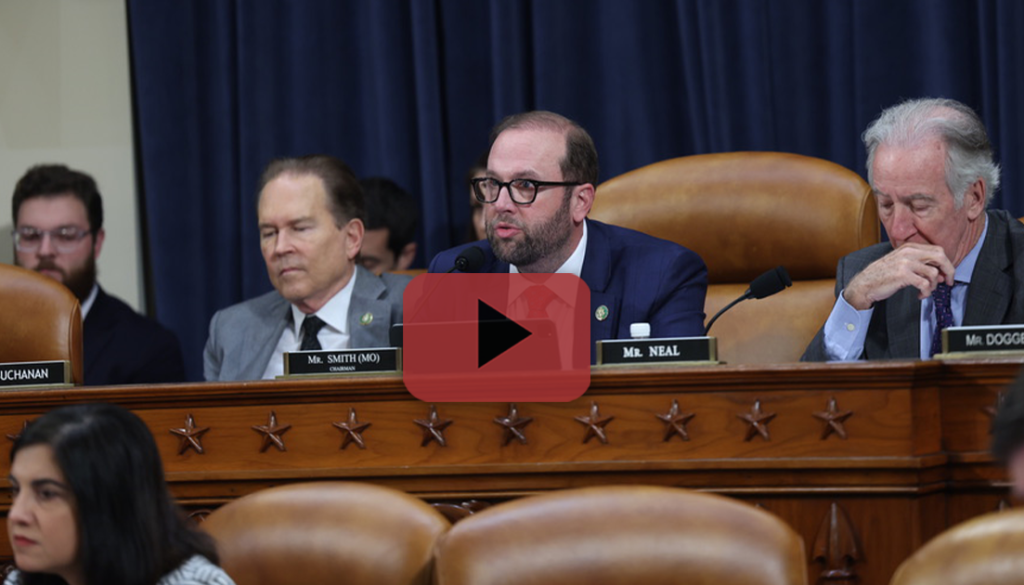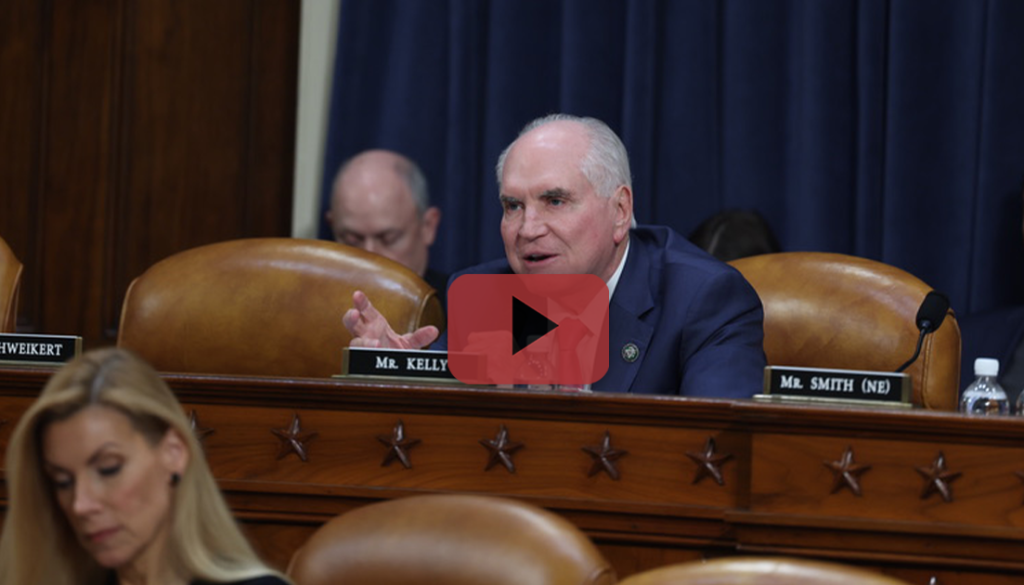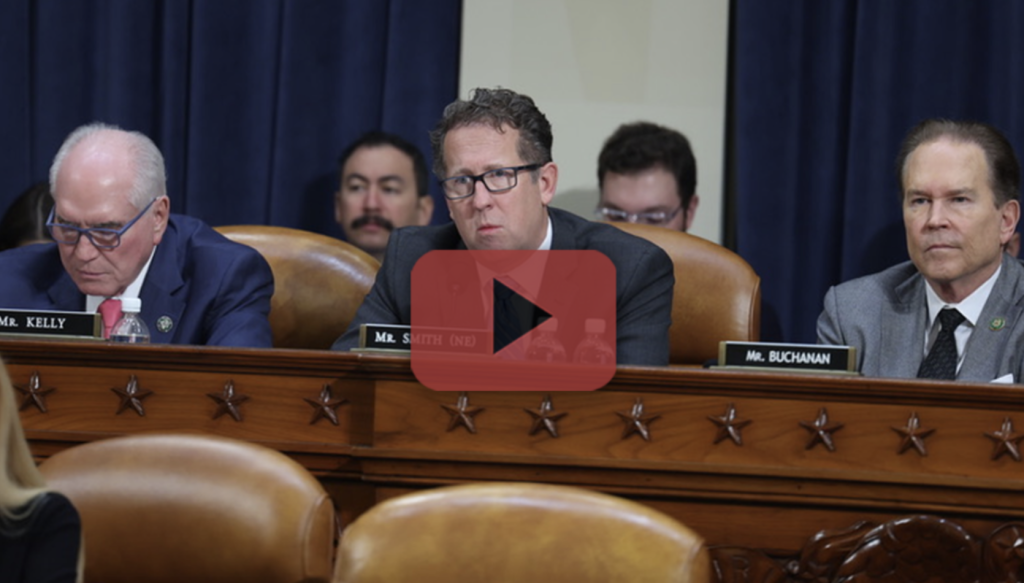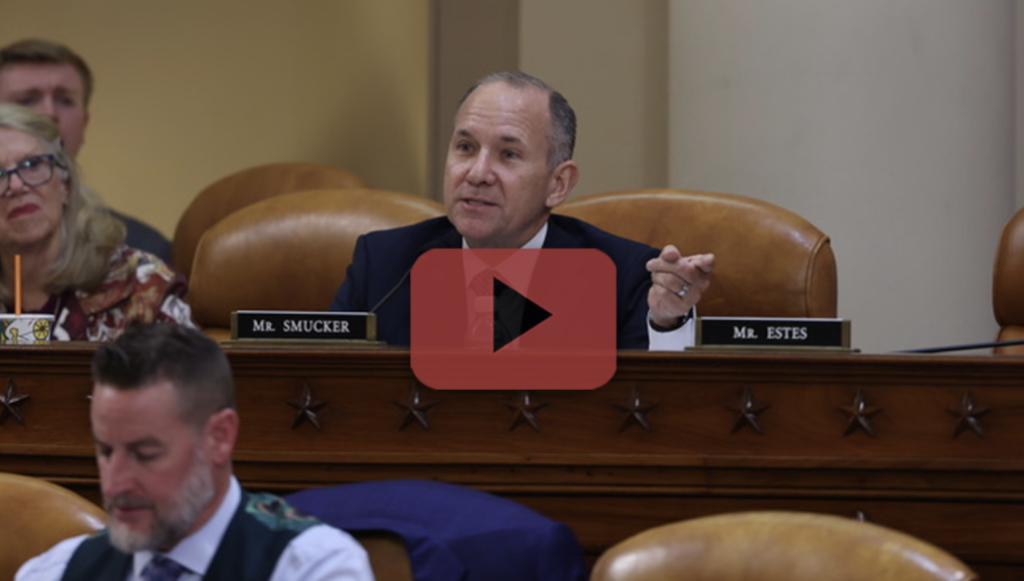WASHINGTON – At a hearing on expanding educational freedom and opportunity for American families, students, and workers, witnesses shared powerful stories of how more educational options changed the course of their lives, created better educational resources for their kids, and helped their fellow Americans learn the skills and enter the workforce.
Members and witnesses discussed how expanding the potential uses of 529 education savings accounts to cover expenses like books, tutoring to help students catch up after online school, educational therapies for students with disabilities, and homeschooling costs, can help the wave of families who are searching for educational alternatives after multiple years of virtual learning exposed the failures of our nation’s schools. Beyond K-12 education, members also explored allowing parents and students to pay for a skilled labor or licensing program with a 529 account to end America’s shortage of skilled labor.
AI Can’t Repair a Car or Fix the Plumbing: 529 Accounts Can Open the Door for Americans Learning a Skill or Trade
While America faces a skilled labor shortage that could reach two million by 2030, for higher education, 529 accounts currently only cover tuition and expenses for four-year degrees. These accounts could be expanded to include skilled labor and licensing programs to help end the labor shortage. They could also help workers gain the skills they need to earn a decent living, and give prospective students an alternative to the traditional but costly four-year degree programs at today’s colleges and universities – institutions that have, particularly as of late, proven themselves to be unhealthy environments where abhorrent views expressed in favor of terrorist activities have been allowed to flourish. In response to Ways and Means Committee Chairman Jason Smith (MO-08), a trucking school president shared a real story of how an expanded 529 account could have helped one of his students start her career more quickly.
Chairman Smith: “Based on your years of experience and knowledge of America’s workforce and small business needs, can you talk about the impact of expanding 529 accounts to cover technical skills and real-world training?”
Jerome Redmond, trucking school president: “Easily…we have quite a bit of students. In fact, I just thought of one in my head…her name is Alania, who’s a current student at our school. She went to nursing school at first; it just didn’t pan out. It became expensive; there were other reasons why she needed to leave. Had she had some type of funding, like this 529, she could have just easily paid for trucking school and gotten her CDL [commercial driver’s license]. I’m actually glad to say also, just as of yesterday, she just got pre-hired for a company. And what pre-hired means…it just means you’re conditionally hired at a trucking company, ready to go as soon as you graduate. I think that the 529 plan should be expanded for folks like Alania.”
“I Refuse to Allow Them to Be Sacrificed in a System That Doesn’t Work for Them”: Parents Should Be in Control of Their Kids Education
Parents know their kids best, care about them the most, and will fight hardest to ensure they get the best education possible. Years of virtual school showed parents that public education in many instances is failing that basic task. ACT scores are their lowest level in 32 years and math scores saw their biggest decline in 50 years. Rep. Mike Kelly (PA-16) took time to highlight the preeminent role parents have in raising and educating their children.
Rep. Kelly: “And when it comes to education, my goodness, there’s no other place in the world where everybody got a chance to get educated. I wish that was still the case today. If you just could give your personal testimony as well…I’m going to start with Ms. Sadler because she comes from the Pittsburgh area, if you could just share, because I think your story as a parent is where we need to go…Talk about why, why it’s so important to you.”
Sharon Sedlar, Pennsylvania mother: “I gave life to my children. I made sacrifices for them. And I refuse to allow them to be sacrificed in a system that doesn’t work for them. That’s why I work hard every day to make sure other children don’t have to sacrifice either. So any way we can lighten that load for our children, and lighten that load for our families, is critical…They’re 25 percent of the population, but 100 percent of our future. I don’t see any better way to spend our time, our resources, and our focus than on that 100 percent of our future.”
Witness Calls Out Hypocrisy of School Choice Opponents: “There’s No Such Thing As Public Funds. They’re Called Taxpayer Dollars”
Taxpayer dollars are frequently used at private institutions to meet basic needs, like food stamps at a grocery store, Pell Grants at a private university, or Medicaid at a religious hospital. Yet, detractors often attack school choice for using so-called “public” funds, which all come from private taxpayers, to meet another basic need – education. In an exchange with Rep. Ron Estes (KS-04), Dr. Corey DeAngelis exposed the hypocrisy of school choice opponents.
Rep. Estes: “For many years, children in Kansas have benefited from these tax scholarship programs. However, there’s now a growing sentiment that private schools should not be allowed to benefit from these scholarships…what’s your thoughts on use of public funds only for private or public schools?”
Dr. Corey DeAngelis, educational freedom advocate: “It’s interesting about this argument that public funds are for public schools. Well, there’s no such thing as public funds. They’re called taxpayer dollars. But then a lot of the people who oppose public funds for private institutions, when it comes to K-12 education, they support it for higher education with Pell grants, for pre-K like the Head Start program, with food stamps going to private institutions that are grocery stores, Medicaid dollars that can be used at private, even religious, hospitals. Section 8 housing vouchers are all good, fine, and dandy, when it comes to housing, but not K-12 education…This isn’t public money. That talking point is moot. It’s totally garbage, if you look at the logical inconsistency, with so many people who repeat this, but then support public [funds] going to private everything else.”
States Are Leading the Way in Helping Parents Afford Educational Choices
Twenty-one states have established tax credits that allow private individuals to donate money to organizations that give educational scholarships to families. For example, Florida’s program currently serves 100,000 families, 68 percent of whom are Black or Hispanic, and whose average income is $24,000. Participants are 12 percent more likely to enroll in college, opening up new horizons. One witness, Hera Varmah, shared with Rep. Greg Steube (FL-17) the importance of the program in creating future opportunities for her and her siblings.
Rep. Steube: “As a former state legislator, I was heartened to hear your inspiring story about how the Florida tax credit scholarship program helped you and your siblings access the educational opportunities that led to such success. How will legislation like the ECCA [Educational Choice for Children Act] help underprivileged youth gain access to essential educational opportunities like you did through Florida’s program?”
Hera Varmah, educational freedom beneficiary: “…[P]arents will know what their problems are; they’ll know where they stand financially; and they’ll know that we may need to get this child into a certain school. I know, in my story, my parents knew that the only way out of poverty was through a quality education and high-quality education…they found the best few schools that were aligned with their values, the best schools that were aligned with pushing us academically, and the curriculums.”
Expanded 529 Accounts Will Help Make Educational Freedom A Reality
After years of virtual school and parent frustration over inappropriate material in school curriculum, many parents have found new educational options that work for their students. Private, home, and charter schools have all seen a significant increase in enrollment. As one Pennsylvania mom who took her daughter’s education into her own hands told Rep. Kevin Hern (OK-01), an expanded 529 account that helps pay for expenses to improve and enhance learning for students – including homeschooling expenses – would make educational choice a reality.
Rep. Hern: “In your testimony, you say there’s no excuse not to empower every family with the options necessary to make the choices that will change their children’s lives, especially as the country continues to strive to recover from the generational learning loss after COVID-19 pandemic. Do you believe 529 expansion beyond K-12 tuition to be a worthy option?”
Sharon Sedlar, Pennsylvania mother: “Of course I do. I think that parents can definitely band together and utilize that functionality to improve their children’s education, add on to that children’s education. We’ve had a lot of success in Pennsylvania with some pods that have remained, some hybrid homeschool situations, so allowing those out of the box modalities are critical in assisting our students.”
Legislation Can Change Lives When You Give People A Chance
There is additional legislation Congress can be looking at to expand student access to more education choices and give parents more affordable options for their children to get a quality education. As Rep. Adrian Smith (NE-03) explains, there is bipartisan agreement that legislation can change lives when it gives Americans a chance.
Rep. Smith: “Let me begin by perhaps agreeing with our Ranking Member, Mr. Neal, when he says that legislation changes lives, and we want to give people a chance. That’s why I introduced the bill that I did, the Educational Choice for Children Act or ECCA. It creates a federal tax credit allocated to scholarship granting organizations in each state and the District of Columbia to improve educational opportunities for families most in need, so that we can empower families, empower students, and empower folks all across America. Because this would provide a tax credit for donations and operates through independent non-government agencies, let me emphasize that funding for public education would remain untouched. In Nebraska, we have just passed a similar approach. What I am proposing and what we are proposing in the ECCA is similar to programs already authorized in 21 states, and as I just said, including my home state of Nebraska. Interestingly enough, a filibuster-proof majority of the state legislature, a bipartisan filibuster-proof majority in the state legislature, passed the state level bill. Not surprisingly, special interests are now working very hard to undo that, to basically take resources away from folks in need, ultimately who want to have a brighter future.”
$197 Billion v. $5.4 Billion
How taxpayer dollars are spent says a lot about where priorities are placed. As Rep. Lloyd Smucker (PA-11) pointed out, the government currently spends $197 billion annually on traditional 4-year college degree programs compared to $5.4 billion on career and technical college and training. It is clear there is a need to look at how we might reconfigure and rebalance our priorities as we ensure more educational opportunities for more American families.
Rep. Smucker: “Mr. Redmond, do you know how much we spend in the U.S. annually on traditional higher education on four-year degrees?…$197 billion. Do you know how much we spend on programs that help support federal workforce programs and career and technical education?…About $4 billion annually on WIOA [Workforce Innovation and Opportunity Act] and $1.4 billion in federal support. Think about that. $5.4 billion for career and technical compared to $197 billion for four-year degrees. Now, I wouldn’t discourage a four-year degree. It’s important. But think about the need to reconfigure and rebalance where we place our priorities.”







